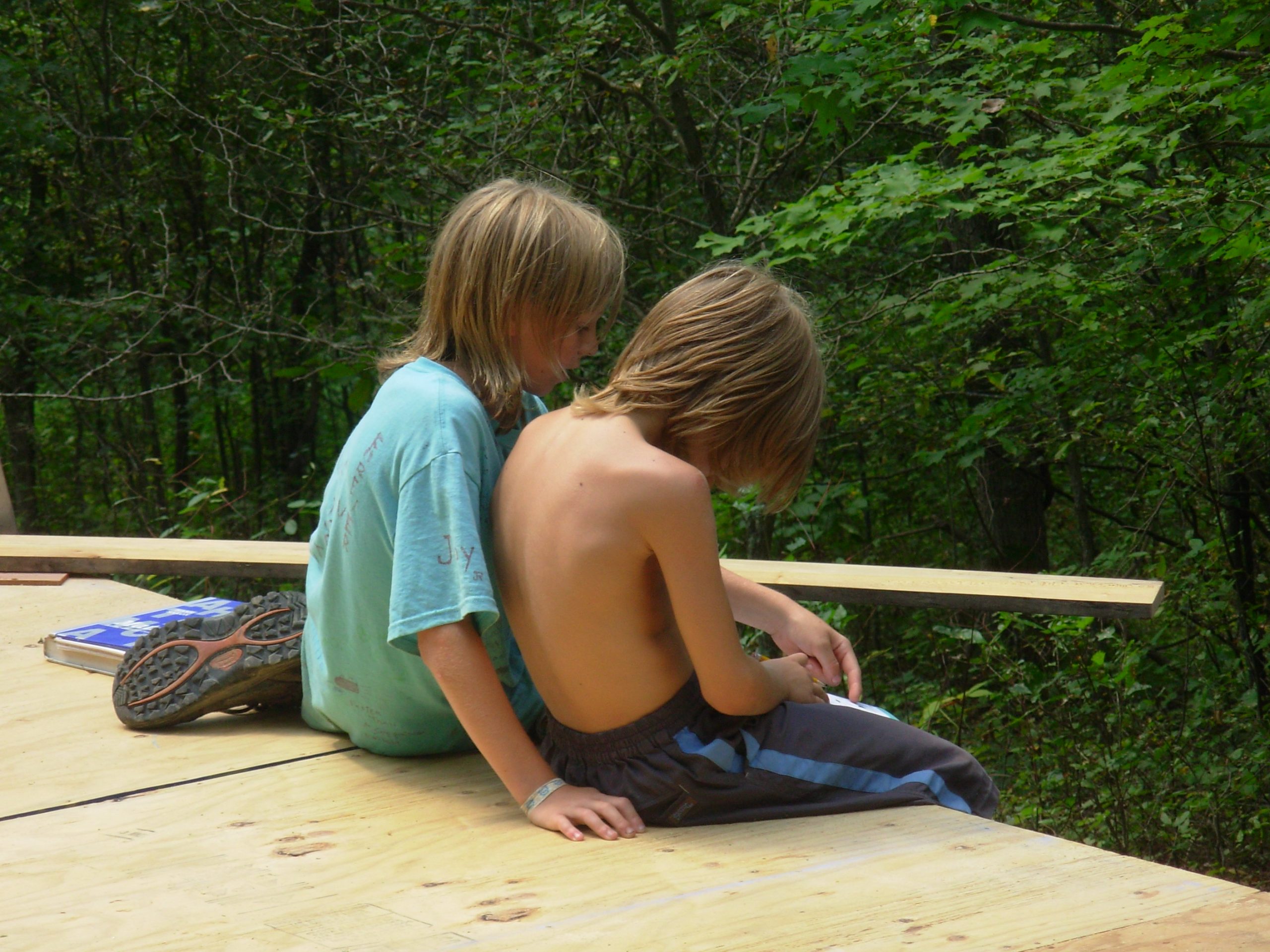I thought of titling this post “Raising Kids without Rules”. Kind-of attention grabbing, especially knowing our kids that are pretty respectful and sweet, and not the sort-of breed of kids that are birthed out of homes where they just let their kids “grow like weeds” and see how they turn out.
But I kinda like the name “The Love Principle”. It rolls off the tongue well and easily summarizes what I hope to communicate. But both titles would have worked.
You see, we’ve tried to raise our kids without “rules”, but rather given them the building blocks to make their own rules. If you start inventing rules for kids, the list is never ending. You could say “Don’t stab your brother with a pencil”, “Don’t shove him”, “Don’t squirt him with the hose if he doesn’t want squirted”, “Don’t raise your voice”, “Oh wait, only raise your voice if there’s a serious emergency”, “Don’t punch”, “Or wait, only punch someone if you have to in order to defend yourself or someone else”, “No pooping on the floor”, “No pooping on the roof”, “No pooping anywhere other than the toilet and maybe the woods, but only if you dig a hole and cover it”. The list is endless. (and sorry about all the poop rules, I am slightly warped from spending all my time with testosterone).
Or you could just say it kinda like Jesus says it “Love God and love your neighbor as yourself”. It seems very appropriate to reference this, because the context is that someone asked Him what the greatest commandment was (Moses’ list of rules, if you will) and He basically summarized them all by saying “The greatest commandment is this, to love God with all your heart, mind, soul and strength and the second is like unto it (meaning one and the same), to love your neighbor as yourself.”
If we teach our kids the principle of love and the many ways that it applies, then we give them the mental tools to make wise choices. If we give them a solid understanding of what love is (and if we understand it enough ourselves to be able to teach them) then they can use what they know of love to handle any situation, well, lovingly. I know it’s overplayed, but meditatively read through 1 Corinthians 13 for a thorough investigation of what love looks like manifested in human relationships.
But, culturally, we kinda have a messed up perspective in this day and age, and might need a little correcting ourselves. For example, Jesus never, ever once was unloving, yet He overthrew the tables in the Temple courts, when folks were exploiting the temple sacrifice to make money, and He yelled at the Pharisees and called them names like “White-washed tombs” and “Brood of vipers”, which sound kinda harsh until you think about the fact that He was defending the weak when He overthrew the tables. When Jesus called the Pharisees names, He was also warning them that they were hell-bound, as well as alerting anyone else that may have sought to follow their example. This was love. Not the feel-good, feminine view of love that many have, but courageous love none the less.
But, of course, love like that is the exception not the rule. There’s also the kind of love that turns the other cheek and submits to the will of others (for example, you want to play chess and So-And-So wants to play checkers… small sacrifice to love someone, eh?).
Love is patient, love is kind, and is not jealous, love does not brag…If we let the Bible define stuff for us, understanding love (and everything else) gets a lot easier.
It is much easier to teach a kid to act, speak and hopefully even think using love than it is to invent a rule for every scenario, because like I attempted to point out earlier, the rules are endless. When we continuously invent new rules, we are only solidifying the idea (in their minds) that our kids are not trusted by us. If we try to impart wisdom and let them use that wisdom in creating their own boundaries, then we are showing them trust.
I utilize this concept in my own life. Usually it means asking myself, “Is my motivation love or guilt?” It could also be “Am I loving others, or only myself right now?”, or just simply “Am I being loving?”. When I ask these questions, I have a much easier time making wise choices… and so do my kids.
By teaching them what love looks like and that their only option is to be loving, we’ve attempted to raise our kids without rules. So far, it seems to be working out pretty well. They’re pretty great, and usually I only have to ask them one question “What does love look like right now?” or in the event that I caught them too late, “Was that loving?”. Our hope in parenting is that, by the time they leave home, they will have the maturity to make wise choices apart from our watchful eye.
Having said all of this, here’s my clause: I am NOT giving anyone an excuse not to intentionally, actively, fully-investedly parent your kids! Yes, we want them to self-manage, but they don’t start out there. Kids are born with a nature that is utterly selfish, demanding, bossy and manipulative. Our kids will not be born with an understanding of love. Our kids will not naturally act loving. It is an exhausting project to teach them these things, and takes countless hours of self-sacrifice and diligence. Good parenting does that. Love may seem simple, but it certainly isn’t easy… and neither is good parenting, for that matter. But honestly, if you put in the time when your kids are younger, your parenting mission will be much more enjoyable when they are a little older… but if you wait, well, it’s kinda like working with dried out clay… mold it when it’s fresh and pliable and it’ll be much easier to mold
be blessed,
Space 3-15-15 a.d.



